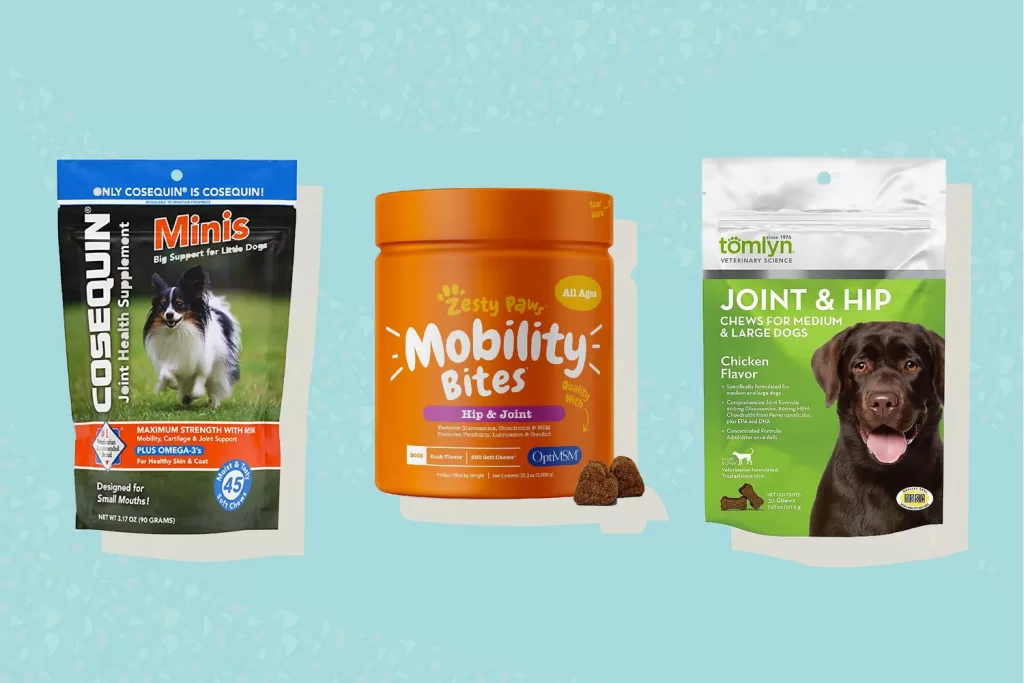Sometimes our pets don’t get all the nutrients they need from food alone. They need some supplements to help round out their diet and give them some additional minerals. Supplements can fill in the gap to help pets get more health benefits. Here are some benefits of pet supplements for dogs.
Table of Contents
Increase Nutrient Absorption
Natural pet supplements can help your dog get more out of nutrients from food. Of course, supplements can provide additional nutrients to their body, but they also make sure it gets properly absorbed.
You don’t want your dog eating something that only passes through them once it’s outside. Get something to fortify how your pet digests things. Maybe you want them to get more supplements to help their bone health as they age.
Also Read: At What Age do German Shepherds Baby Teeth fall out? Complete Teeth Care
You need solid compounds to rebuild your pet’s joints as they endure wear and tear over the years. Find natural supplements that provide fewer toxic chemicals to the bloodstream to prevent side effects. This way, you can incorporate things safely and keep your dog from having adverse reactions to various substances.
Keep Them Mentally and Physically Active
Their spatial and mental awareness goes down as they age. Sometimes cognitive dysfunction syndrome sets in with older dogs. However, you can slow this down with quality supplements that have antioxidants to keep their mind together.
Vitamins C and E can help them keep focus and active. Combine supplements with walks, training, and interacting with other dogs to keep their minds sharp. Not to mention, they’ll be able to stay mobile and limber as they mature.
Without mental and physical stimulation, your dog will live a sedentary lifestyle that would negatively affect their health in the long run. You want to keep your dog alert throughout its life.
Improve Their Skin
Another reason why you should incorporate pet boosters is to help their skin. From fleas, bacterial infections, and abnormal shedding, your dog could go through situations that damage their fur. Supplements can help protect and keep the skin healthy.
Sometimes their skin dries out after bath time, so you may need to incorporate a topical or oral supplement to preserve their natural shine. Fish oils and amino acids can help fix an internal issue that you see on the outside. Always consult a veterinarian before you get on a treatment to help your dog’s system.
With quality supplements, exercise, and healthy eating habits, your pet will live a quality life deep into his doggy years.
Pet Supplements for Dogs age-wise and Breed-wise
Here’s a chart outlining some common pet supplements for dogs categorized by age and breed. Please note that this is a general guide, and specific supplement needs may vary for individual dogs. It’s always best to consult with your veterinarian for personalized recommendations.
Age Wise:
| Age | Supplements |
|---|---|
| Puppy | 1. Multivitamins |
| 2. Probiotics | |
| 3. Calcium and Vitamin D for bone growth | |
| 4. Omega-3 fatty acids for brain development | |
| Adult | 1. Multivitamins |
| 2. Joint supplements | |
| 3. Omega-3 fatty acids for coat and skin | |
| 4. Antioxidants for immune support | |
| Senior | 1. Multivitamins |
| 2. Joint supplements | |
| 3. Cognitive support for brain health | |
| 4. Digestive supplements | |
| 5. Coenzyme Q10 for heart health |
Breed Wise:
| Breed | Supplements |
|---|---|
| Large Breeds | 1. Glucosamine and Chondroitin for joints |
| 2. Calcium and Vitamin D for bone health | |
| 3. Omega-3 fatty acids for heart health | |
| 4. Digestive enzymes for digestion | |
| Small Breeds | 1. Omega-3 fatty acids for coat and skin |
| 2. Antioxidants for immune support | |
| 3. Dental supplements for oral health | |
| 4. Probiotics for digestive health | |
| Active Breeds | 1. Joint supplements for joint support |
| 2. Electrolytes for hydration | |
| 3. Muscle support supplements | |
| 4. Energy-boosting supplements | |
| Senior Breeds | 1. Joint supplements for arthritis |
| 2. Cognitive support for brain health | |
| 3. Coenzyme Q10 for heart health | |
| 4. Digestive supplements |
Remember, this chart provides a general overview, and it’s important to consider your dog’s specific needs and consult with your veterinarian for accurate recommendations.
FAQs on Pet Supplements for Dogs

What are pet supplements for dogs?
Pet supplements for dogs are products specifically formulated to provide additional nutrients, vitamins, minerals or other beneficial ingredients to support the overall health and well-being of dogs. They are designed to complement a dog’s regular diet and address specific nutritional needs or health concerns.
Why do I give my dog supplements?
There are many reasons why you should consider giving your dog supplements. Some common reasons are:
Nutritional Support: Supplements provide additional nutrients that your dog’s regular diet lacks.
Joint health: Certain supplements support joint health and help reduce symptoms of arthritis or joint stiffness.
Digestive Health: Digestive supplements can help promote healthy digestion and address digestive issues.
Coat and Skin Health: Supplements with omega-3 fatty acids and other beneficial ingredients can improve the condition of your dog’s coat and skin.
Immune System Support: Some supplements are designed to boost the immune system and boost overall immunity.
Aging and Senior Dogs: Aging dogs may benefit from supplements that address age-related issues such as cognitive decline or joint problems.
Are pet supplements safe for dogs?
In general, pet supplements are safe for dogs when used as directed. However, it is essential to choose supplements from reputable brands and consult your veterinarian before starting any new supplement regimen.
Your veterinarian can provide guidance on the right supplements for your dog’s specific needs and ensure they do not adversely interact with existing medications or health conditions.
Can all dogs benefit from supplements?
Not all dogs necessarily need supplements, as a balanced and complete diet provides the nutrients they need to thrive. However, some dogs may benefit from supplements, such as certain health conditions, senior dogs, or dogs on restricted diets.
It is best to consult your veterinarian to determine if supplements would be beneficial for your dog.
What are some common types of dog supplements?
There are a variety of dog supplements available on the market, including:
Multivitamins: These supplements provide a wide range of essential vitamins and minerals.
Joint Supplements: Formulated for joint health, reducing inflammation and reducing joint pain or stiffness.
Omega-3 Fatty Acids: These supplements promote healthy skin and coat, reduce inflammation, and support cardiovascular health.
Probiotics: Supplements containing beneficial bacteria that help maintain a healthy gut and improve digestion.
Antioxidants: Designed to boost immunity and protect against free radicals.
Cognitive Support: Supplements that help with cognitive function and support brain health, especially for senior dogs.
How do I choose the right supplement for my dog?
Choosing the right supplement for your dog can be challenging. Here are some tips:
Consult Your Veterinarian: Seek advice from your vet to determine if your dog needs supplements and which is most appropriate.
Consider your dog’s specific needs: Assess your dog’s age, health condition, and any specific concerns (e.g., joint problems, skin problems) to guide your selection.
Choose reputable brands: Look for supplements from reputable and trusted manufacturers to ensure quality and safety.
Read product labels: Check ingredients, dosage instructions, and any potential side effects or contraindications.
Start with single-ingredient supplements: If you’re unsure about your dog’s potential sensitivities or allergies, start with single-ingredient supplements to identify any adverse reactions.
Monitor your dog’s response: Keep an eye on your dog’s overall health and well-being after starting a new supplement. If you notice any adverse reactions, discontinue use and consult your veterinarian.
Remember, supplements should complement a balanced diet and health

